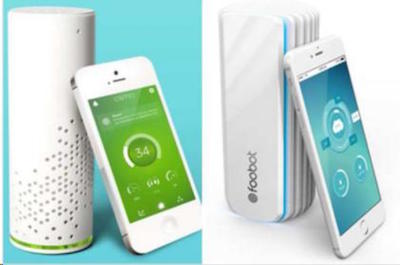
The Luxembourg Institute of Science and Technology (LIST) has announced that its researchers, in partnership with Airboxlab, are developing Foobot, an indoor air quality monitor, based on data analytics techniques to forecast the air quality.
Foobot is designed for private homes and uses the Internet of Things (IoT) to offer advanced services via mobile devices (smartphones, tablets) enabling users to reduce their exposure to pollution.
To improve the performance of Foobot and enhance the information provided to users based on continuously recorded temperature, humidity, volatile organic compound and fine particle measurements, Airboxlab has called on researchers at the Environmental Research and Innovation (ERIN) department at LIST. To this end, the e-Science research unit, dedicated to the analysis and visualisation of data with a particular, but not exclusive interest in environmental applications, will develop original algorithms for predictive analysis.
Initially, these algorithms will allow for a type of weather report on indoor air quality to be produced. Thereafter, Airboxlab foresees the creation of a ‘Wikipedia’ of air quality, drawing on the input of its user community by means of crowdsourcing. Foobot owners will be able to flag periods of pollution, and then qualify them in order to compile a database and allow for refinement of the algorithms. LIST researchers' cutting-edge data analysis expertise will then be crucial in creating a service with high added value based on this inflow of information.
Targeting the international market from the outset, Airboxlab has already run an extensive test campaign in twenty-four countries. The first phase of collaboration with LIST, which began in April 2015, made use of the data collected in preparation for the next version of Foobot. A long-term partnership has already been planned in order to improve new generations of Foobot over time.
For more information on Foobot and Airboxlab, visit http://foobot.io.








